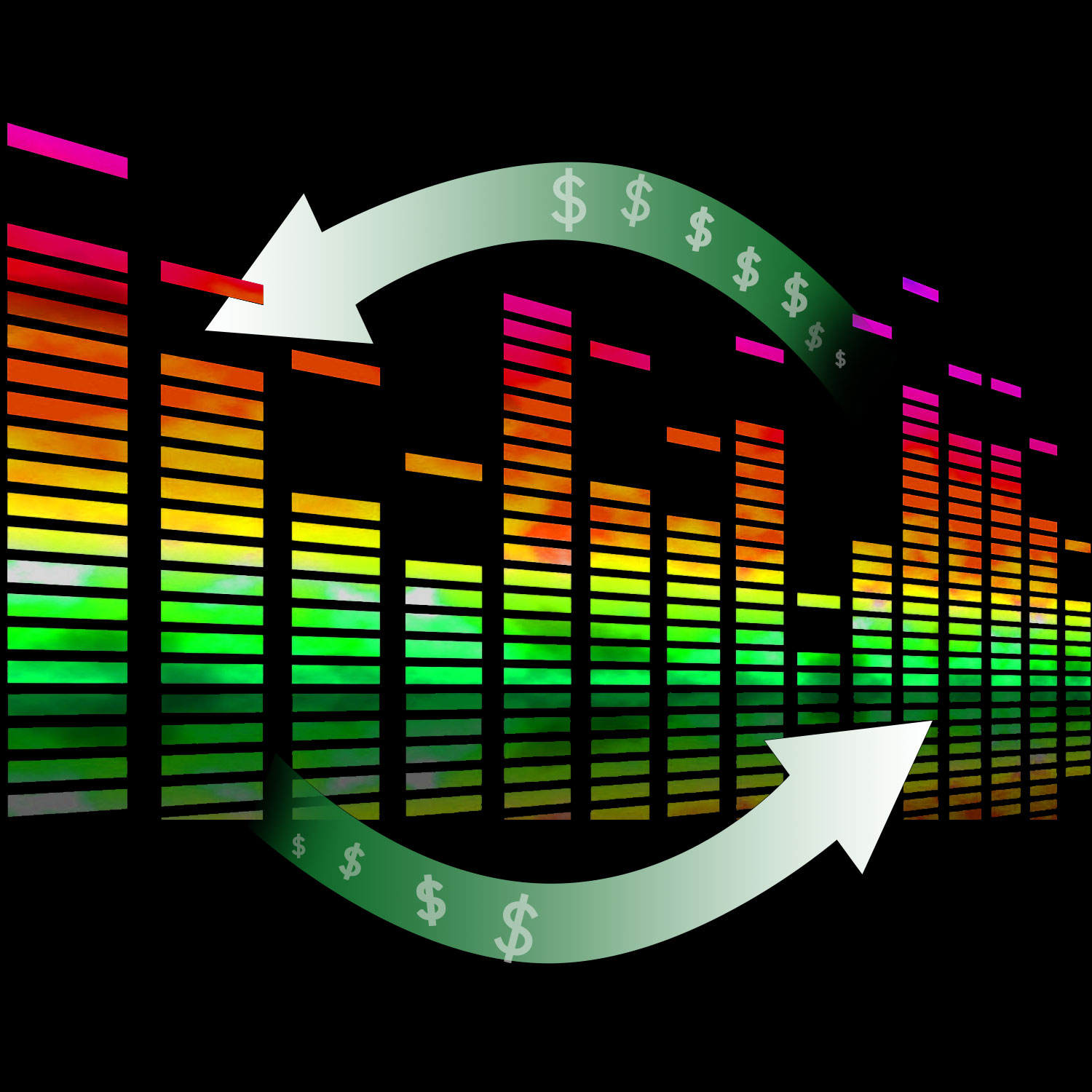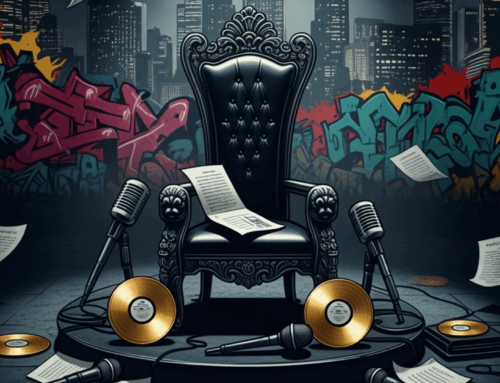It happens all the time. That song that played at the 9th grade dance when you finally nerved up and kissed your date remains forever etched in your memory. You’ve probably still got the CD.
We all long for simpler times. Even more, we long for situations that we already know the answer to. That’s the beauty of the past, and why it seems so larger-than-life to us now. I have emo-tinged mornings where I play, in the background while I write, old Blink-182 videos on YouTube over and over. For whatever pathetic reason, it makes me happy. It reminds me when I used to get so stoked to just go out with friends and try meet girls, or go to a show and devise a way to sneak into the pit area because our tickets were for level 2. Back when we’d gladly fork over $15 for a 12-song cd.
But just like your high school girlfriend, those days are gone. Since Napster hit the scene, artists and labels have struggled to monetize recorded music the way they did before. The rise of torrent downloads and streaming platforms dropped the guillotine on our old friend Sam Goody.
Live shows and merchandise are seemingly the only way a musician can make a living anymore. Want to know why that artist from the eighties is still touring? It sure as hell isn’t because sixty year olds love staying out until 2 AM every night and living out of shitty hotels. They need the money, and the royalty paycheck isn’t nearly what it used to be.
Artists have tried just about everything to get people to buy their music. Vinyl has had a bit of a revolution of late, but many fans buy it as much for nostalgia as to actually listen to the music. When it comes to what’s in their earbuds, it’s digital all the way.
But according to some within the industry, forthcoming technology is about to change the game for artists’ ability to monetize their tracks. Best part for fans is that you don’t have to worry about dropping any money at the record store. Smart Media, which aims to eliminate the middleman between artists and their royalty checks, is coming.
Is it good enough? Will it catch on? Will artists actually make any money? That remains to be seen. But, as I’ve argued in previous columns, the artists who successfully take advantage of every opportunity and master new technologies will survive. Smart Media just might be their saving grace.
Technology is invaluable for the business-savvy artist
Smart technology should be fully embraced. Like climate change and marijuana legalization, it’s arrival is inevitable and denial will lead to dire and embarrassing consequences. dotBlockChain Media and PledgeMusic founder Ben Rogers recently published an article on HypeBot called Songs as Skill: How Smart Media Will Govern The Future Of Media. A new tracking/streaming system aims to lessen the importance of hosting platforms like Spotify. By streaming tracks directly from (and delivering royalties directly to) the owners of the track, the corporate middle man can, in some circumstances at least, be phased out. The hope is that artists will then see a larger share of money for their licensed work.
In the article, Rogers argues that smart technology will allow digital tracks to contain rights information so effective and efficient that artists, producers, labels, and any other rights holder on a track or album will be able to monetize their music easier than ever before. Reproduceable MP3s and WAVs would slowly bite the dust.
Rogers has this to say about MP3 and WAV files:
“This Clinton-era technology that we use to deliver our musical works to some of the most advanced digital technology companies on the planet can’t even be relied upon to carry the correct name of the song or the artist, let alone all the other information needed to account for all who are a part of the music itself.”
This is true. I count my blessings that I don’t work at ASCAP right now. Artists are due royalties when their tracks are used by others for profit, and I wish nothing but ill will towards any who try to screw over working musicians.
I agree with Rogers in that the way royalties are tracked right now is incredibly inefficient.
Additionally, I love his idea of the smart tracks eliminating middle men in royalty payments: “It’s my belief that the smart assets themselves are going to be what these modern devices and networks will require to live up to their full potential, and this means that the majority of revenues can be paid directly to those whose rights are enshrined within the songs themselves.”
Hopefully, Smart Media will help to wrangle in the power that mega-platforms like Spotify have over artists. But, artists still can’t forget about the rest of their business approach.
Artists must continue to take personal responsibility for their income and business
Smart technology or not, it takes a musician dumber than a bag of dirt to sit around expecting to make a living off record or track sales in 2017. Those of us under 40 haven’t been of legal drinking age during a time when it was possible for a small or mid-level artist to make a decent income without having to hit the road.
The increase in available technology and the possibilities for success that come with it also bring added responsibility. I encourage musicians of all types – from DJs to rock bands to rappers – to embrace a 360-degree approach to business.
The general public is now so accustomed to not paying for recorded music that getting them back to doing so, at least to a level equal to what we paid for a cd back in 1998, is a fool’s errand. So who is going to foot the bill following this increased tracking of royalty dues?
I’ve spent over a decade now in the music industry, as a musician, talent buyer, and magazine editor/reporter. I can assure you that any further financial stress put upon the industry’s small businesses will be disastrous. Independent venues cannot afford to pay higher royalty premiums, nor should they have to. This is particularly true of those who host artists performing original music. Promoters and festival producers? Most of them don’t have the money either. The overhead costs on these businesses is already so high that staying afloat in a competitive market is a constant challenge. I don’t encourage dodging royalty calls or hiding in the office when the BMI rep shows up at the door, but I do feel for the club owners when they say enough is enough.
I truly hope that artists will see an increase in streaming revenue. But it will never be enough. This is where my current passion lies in the music world, in fact. An embarrassingly high percentage of amateur musicians fail to realize how to monetize their efforts. If they can’t take the time to focus on back-of-house tasks like show promotion, digital marketing campaigns, and merchandise sales, it doesn’t matter how good the technology is. Those royalty checks are never going to show up in the mail.
Small and mid-level artists will continue to see a majority of income outside of royalties
The artists who thrive in all aspects of the music business will continue to be the most successful. Those who put time and effort developing an engaging live performance will continue to demand higher guarantees. Targeted ad campaigns on social media will continue to find fans. BigCartel stores and Bandcamp profiles bring in a nice chunk of extra change to fund van maintenance and other expenses.
When a DJ or a band does some research on running a small business, they will slowly begin to see the big picture of what success in this industry necessitates. If they take the time to develop a business plan built as much around live performances, social media sales funnels, and digital marketing, as it is around using the best studio and producer to record their tracks, they can experience growth and scale that most never see.
The hundreds of thousands of YouTube views on crappy old footage of rock concerts that happened twenty years ago is proof that I’m not the only one who suffers from the bite of nostalgia. The irony here, though, is that I’m using the technology, YouTube, to revisit my past. Those videos typically lead into others posted by modern artists who’ve mastered the back end of YouTube’s algorithm and now have their lyric tracks or videos show up after those of huge stars. Smart technology may be able to send the royalty check directly to the artist, but it doesn’t mean the artist isn’t going to have to reach for it.




